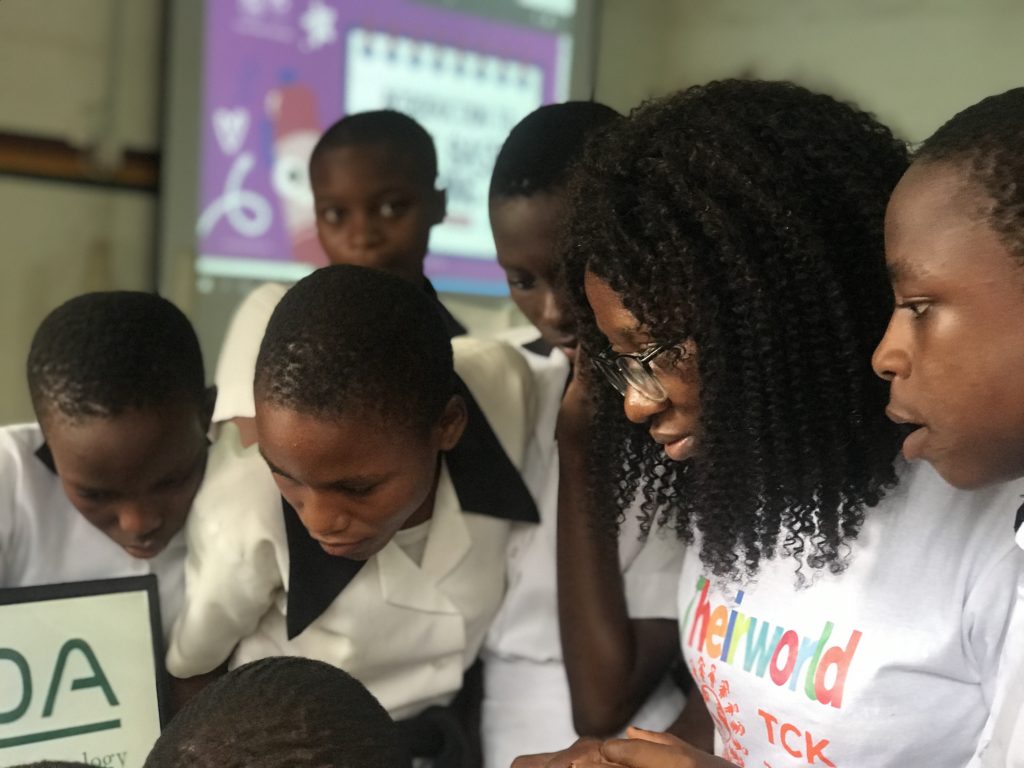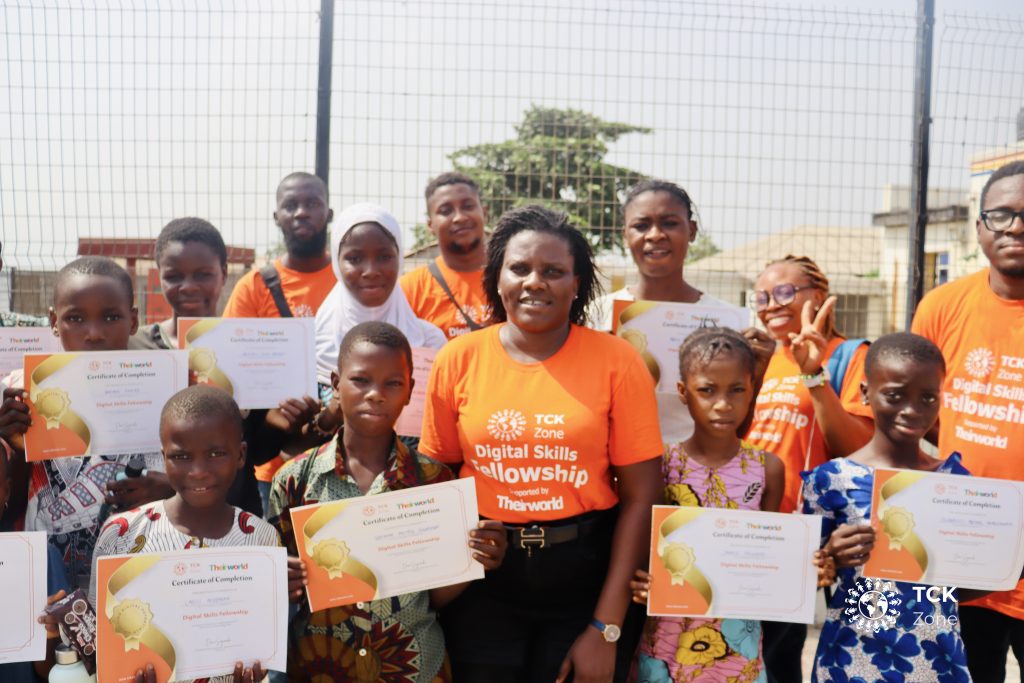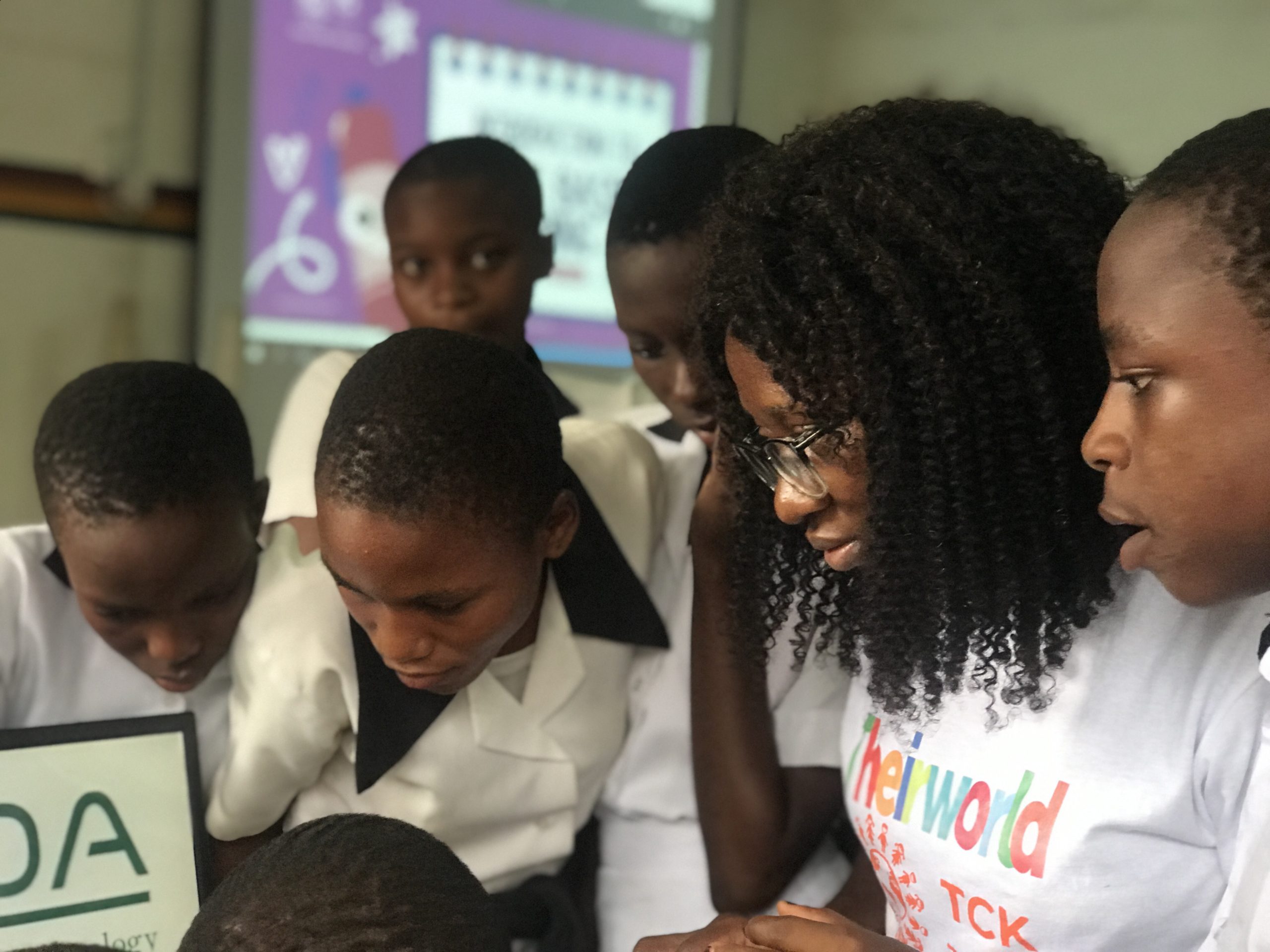Empowering 500,000 students through digital literacy was a bold mission. For students across Africa, the ability to access, evaluate, and create digital content has the power to unlock new pathways to learning, innovation, and economic opportunity. That’s why the mission to empower 500,000 students through digital literacy in 2024 through the Theirworld Education Innovation Program was not just a bold target, it was a necessity.
As an Edtech consultant and STEM educator, I’ve spent the last decade working at the intersection of technology and education. Through initiatives like TCKZone and Skooqs, I’ve had the privilege of designing and delivering digital programs that have reached underserved students across Nigeria and beyond. Our work began with a handful of schools, now, we’re building the momentum to impact half a million learners. But why does this matter, and how can we do it well?

The Urgency of Digital Literacy
Africa’s youth represent one of the continent’s greatest assets. With more than 60% of the population under the age of 25, we’re sitting on a generation brimming with untapped potential. Yet, without access to digital skills, that potential risks being left behind.
Digital literacy isn’t just about using a computer or navigating Google. It’s about critical thinking, creativity, communication, and responsible technology use. In a world shaped by artificial intelligence, e-commerce, remote work, and content creation, today’s students must be prepared not just to consume, but to contribute.
Unfortunately, in many communities across Africa, students attend schools without functional computer labs, reliable internet, or trained instructors. This is the digital divide we must close it fast.
According to UNESCO, digital skills are now essential to access quality education and job opportunities globally. Africa must act fast to close the digital gap or risk deepening inequality.
Building Scalable, Contextual Solutions
To reach 500,000 students, we knew the solution must go beyond classroom workshops and one-time training. It required systems thinking. It demanded curriculum design, teacher empowerment, government engagement, and scalable Edtech platforms that are contextually relevant to Africa’s unique realities.
At TCKZone, we approached this challenge by embedding digital skills in everyday learning. To achieve this;
- We trained teachers to become facilitators of technology, not just users.
- Created simplified, physical worksheets, manuals, and content that can work in low-bandwidth areas.
- Partnered with schools, government agencies, to integrate digital literacy into formal and non-formal education systems.
When a 14-year-old girl in rural Calabar, Cross River State, learns to design her first webpage or create a digital poster for her local campaign, she gained more than a skill, she became empowered. She begins to see herself not just as a student, but as a creator, a leader, and a changemaker.
We’ve seen students go on to launch small businesses, enter global design competitions, and even teach their peers. Many of them had never touched a computer before joining our programs. This is the kind of transformation we aim to scale.

Partnerships and Policy Matter
Scaling to 500,000 students wasn’t a solo mission. It involved strong partnerships with schools, local government offices, ministries of education, corporate funders, and local communities. Through collaboration with organizations like Theirworld and education-focused agencies like Teammasters Limited led by Rotimi Eyitayo, we aligned digital literacy efforts with national education goals.
Policy also plays a role. When digital education is embedded into curriculum frameworks and supported by investments in infrastructure and teacher training, impact becomes sustainable.
As we scaled, we focused on building learning platforms, open-source resources, mobile-first courses, and teacher development pathways. We created content in local languages (Hausa). We continuously tracked outcomes and collected stories of transformation. And most importantly, we listened to students, teachers, and community leaders to ensure we were meeting real needs, and not making assumptions.
Read the full report here
Final Thoughts
Digital literacy is the great equalizer of the 21st century. For African students, it opens doors to education, entrepreneurship, civic engagement, and global participation. But achieving this vision requires strategy, community, and innovation.
If you’re an educator, policymaker, donor, or parent who believes in the power of digital skills to change lives, I invite you to join us. Let’s build systems that don’t just teach students how to use technology, but how to use it to lead.
Ready to support or collaborate on a digital literacy initiative? Explore my work or contact me directly.


